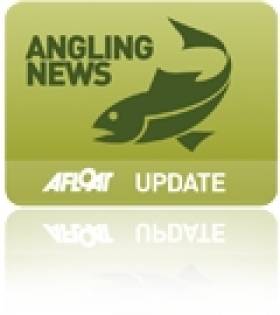Displaying items by tag: Derek Davis
Tributes Paid to Marine Journalist Derek Davis
#derekdavis – Marine minister Simon Coveney TD has led tributes to marine journalist Derek Davis (67) who died today. The former broadcaster and RTÉ TV presenter and former Afloat fishing correspondent was born in Co Down and began his media career as a news journalist, working with the American network ABC and BBC Northern Ireland before moving to the newsroom in RTÉ.
'Derek was a big personality, a passionate and talented communicator on both food and marine issues. His love for the sea was so evident whenever I met him. Derek was a much loved figure in so many Irish homes for the connections he created over a lifetime of broadcasting', Mr. Coveney said. 'He will be missed by so many. I'd like to offer my condolences to his family and many friends.' he added.
And tributes paid to broadcaster Derek Davis who died today. Join @boucherhayes from 4.30 http://t.co/wDHBvgfmPk pic.twitter.com/t5tCdU1hru
— Drivetime RTE (@drivetimerte) May 13, 2015
[UPDATED] Former RTÉ radio & TV host Derek Davis has died - http://t.co/iSkfH7Tf1Q #RIP #RadioNews pic.twitter.com/lDf0GbY5Eh
— RadioToday (@RadioTodayIE) May 13, 2015
Check out a gallery of the late broadcaster and writer Derek Davis whose died earlier today http://t.co/OGftaLtN14 pic.twitter.com/aedNpTUewk
— RTÉ One (@RTEOne) May 13, 2015
First Meeting of National Inland Fisheries Forum
Seasonality, climate change and the environment were the hot topics discussed at the inaugural meeting of the National Inland Fisheries Forum in Athlone last Thursday.
Inland Fisheries Ireland chief executive Dr Ciaran Byrne hosted the forum, whose 60 voluntary members - drawn from various stakeholder groups - are is set to meet twice annually.
The day saw TV personality and keen angler Derek Davis installed as chairman of the forum, following his appointment by the Minister for Natural Resources.
Davis noted that the forum "can influence policies for the protection, management, development and conservation of this valuable resource now and for the generations to come."
In his own address to the forum, Dr Ciaran Byrne highlighted the members' collective experience in fisheries management on Ireland's inland waterways.
“A number of you have served as members of the central and regional fisheries boards, some for over 20 years," he said. "As members of the forum you have the opportunity to discuss and advise on the future of inland fisheries in Ireland. IFI looks forward to receiving your considered views on the various issues.”
In a message to the meeting, Minister Pat Rabbitte stated his belief "that the forum will provide a meaningful channel of communication between the stakeholders and management of the inland fisheries resource".

























































